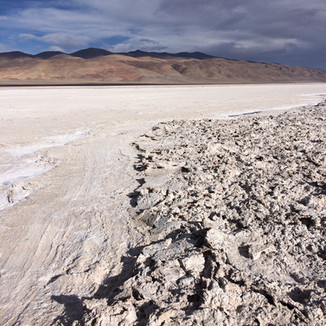The Experience Curve
- Aaron Dickson
- Nov 14, 2017
- 2 min read
Over the last year I've been on a journey towards film, with the aim of going full time film for all my work. I'm just back from a 5 week trip to South America where I took the bold decision to shoot everything on my 40 yr old Hasselblads. A risky move as I had invested so much in this trip, and on the flight home I had no way of knowing if I managed to capture the landscape at all (or worse, rolls of ruined film caused by some unknown mechanical fault!). The only thing I had to reassure me was remembering that during my shoots I always felt in the zone, making very few errors and always feeling like my camera and gear were an extension of me.
During the long flights I had brought a book to read called The Switch, a book about the global race towards solar power. The main driving force behind this race is a thing called The Experience Curve. When the first solar panels were made over 50 years ago they cost thousands of dollars per watt of energy to produce, nowadays the cost is under 50 cents per watt and continues to fall each year, allowing solar farms to become a cheaper alternative to traditional power stations. The basic design of solar panels hasn't really changed, so the accumulated experience of making the same product again and again and improving manufacturing techniques has lead to great efficiencies in their production.
You're probably wondering what this has to do with photography right now. But, over the last year I've stuck with the same camera, 3 lenses and set of filters for my work. When I'm out on location I have a routine procedure when I'm working, and I always pack my bag in a specific order, so I'm never looking for equipment. By sticking to the same gear and workflow model I've become more and more efficient at what I do, and I'm really starting to see the results. Admittedly, when I first moved to film my work suffered, and it has cost me time in my career development, but once I received my film back from the developers and put the slides on my light table, I was looking at probably the best work I've ever done.

It's been very satisfying to find a model for my work that allows me to really develop my photography skills. The actual technicality of photography has faded into the background, I no longer need to think much about it, and I can now focus more of my energy into the creative side of photography. I've still to get my slides scanned as I've been busy with other work, but what I'm expecting to get out of my trip is extremely exciting for me.
So as a way to improve your own work, look for a workflow that brings out the best in you, and follow your own experience curve.







Comments